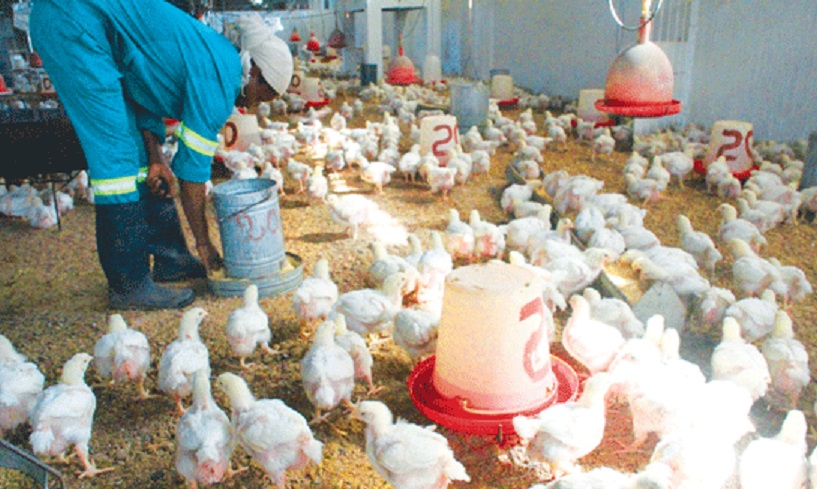Mozambique: Minimum wages increase 2.9% to 9% depending on sector; with retroactive effect from 1 ...
Mozambique: Ban on chicken imports from South Africa “suspended until 31 December”

Notícias (File photo)
The Ministry of Industry and Commerce expects Mozambique to import 3.5 thousand tons of chicken and derivatives from now until the end of December, in order to cover the supply deficit and the needs not only of the festive season, but also demand during the first half of 2018.
Speaking at a press conference in Maputo yesterday, Director of Domestic Trade Zulmira Macamo said the coordinated effort involving the Ministry of Agriculture and Food Security, the Mozambican Tax Authority and producers and importers would ensure that there was no shortage of chicken products during the festive season.
“We are close to the festive season and, looking at the consumption needs of the country and considering that we do not as yet have much domestic capacity, we have set a quota for imports to the end of December,” she said.
Macamo said that last year, the amount imported was approximately 5,000 tons, but with the increase in domestic production this year and the start-up of new production units, the deficit had fallen to 3.5 thousand tons.
“The festive season inter-ministerial group has already begun its work to ensure that there is no shortage of products or price speculation. We are working with producers to ensure the supply of large supermarkets in good time,” she explained.
Domestic chicken production for the current year is approximately 90.5 thousand tons, while national consumption is of about 95 thousand tons, the deficit being supplied with imports, mainly from South Africa.
Regarding the ban on the import of hatching eggs following the bird flu epidemic in South Africa in June and July, Macamo said that it would continue to be necessary to import them from Europe, namely Portugal and Spain.
“The import of eggs from Europe has increased production costs because of additional costs for transportation. The Ministry of Industry and Commerce, in coordination with other institutions, met with the big producers to urge them not raise prices of frozen chicken to retailers,” she said.
She explained that the increase in the cost of chicks from 35 to 55 meticais had forced retailers to increase the price of live chicken.
“Before the ban on imports from South Africa, the chick cost 35 meticais, but that rose to 55 because of the costs of transportation and import logistics. At the moment, the ban has been lifted and some producers are already importing from South Africa,” she said.
Macamo said that chicken being produced in this cycle would be marketed at a relatively low price because producers were already buying chicks for between 35 to 37 meticais from South Africa.












Leave a Reply
Be the First to Comment!
You must be logged in to post a comment.
You must be logged in to post a comment.